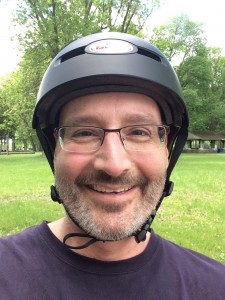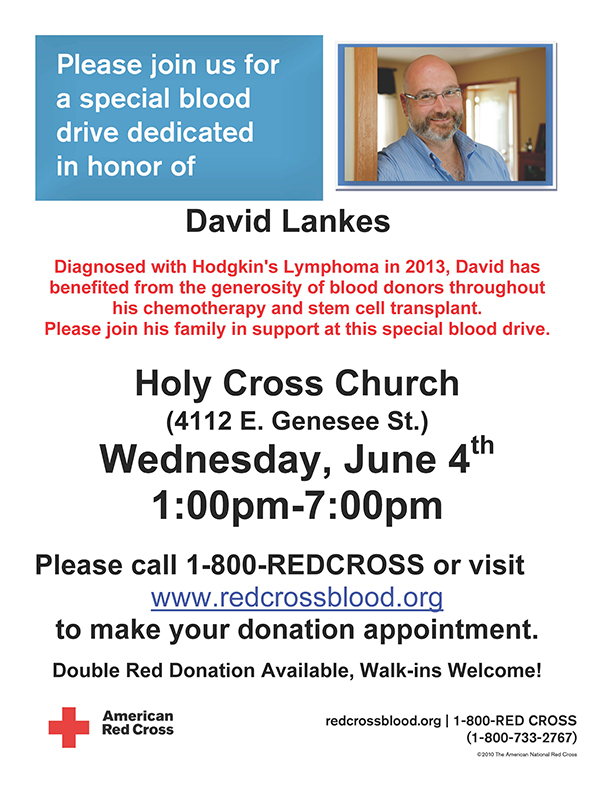I tell you the following story of what happened to me today to:
- To amuse the twisted and snarky
- As a cautionary tale for those who seek to serve
- To let those following my health know about the results of my PET scan
Normally when you get a medical test, you get a result. Often times, these are nice and definitive. For example, this morning I had blood taken and I found out that my platelets were 17. That’s good, because two days before they were 7. You see what I mean about definitive. “Hey Dave, how are those platelets coming?”
“17, thanks for asking.”
Well, PET Scans aren’t always so nice. They require professional interpretation. A radiologist looks at them and says things like “appears normal.” Or “some indication of abnormality in the mesentery region.” This can be very unnerving. “Hey Dave, how’s that mesentery region?”
“Ah, you know, showing signs of abnormality.”
It is with this background that I can start my story. This morning I went to see my oncologist. As is normal, the first doctor to see you is not your doctor, but one of a seeming endless mass of fellows. It turns out this fellow I had seen before. She is the one that a year ago (almost to the day) told me that I had lymphoma and then kicked my wife out to do a bone marrow biopsy before the pathology lab closed. This was remarkably like “Hi, your husband is probably dying of cancer, now please wait in the lounge as I drill his hipbone with a very large steel needle.”
Anywho, “Bringer of Doom,” as my wife and I now refer to her, came in today, asked how I was feeling, and then stated that the PET results showed uptake in the abdomen, meaning that the chemo wasn’t working. Worse still, as my wife pointed out, it seems to have spread since the last PET scan didn’t show anything in the gut.
I will pause here for my more excitable readers to point out that this story does, as far as it can, have a happy ending…just wait for it.
“Last PET scan? Was that in May” asked Bringer of Doom.
“No it would have been October.” I responded attempting not to notice my wife’s tears welling up and a low refrain of “oh shit oh shit oh shit.”
“Was it here?” asked Bringer of Doom.
“No, it was at Brittonfield.”
“Oh, I’ll have to look at that in the external record. I only went back to November and I didn’t see anything. In any case, your doctor will be in soon,” and Bringer of Doom felt for my lymph nodes, listened to my lungs and left.
Now I would like to describe to you the immense awkward feeling you have when in a small examine room with your wife when you are told that your “salvage treatment” (actual medical terminology) is not working. You can’t lose it, or your wife will, and you have to be brave and not wanting to wail like a little girl amongst nurses you have come to know and like. I would like to describe that for you, but before I could figure it out there was a knock on the door. I had to have a social worker do an assessment of me for my insurance. By the way, best question asked? How do you cope with stress…answer shrug. N case the social worker is reading this, I would like to change my answer – sarcastic social media postings.
So the social worker leaves, and in walks my doctor, a new nurse and, of course, Bringer of Doom.
“So I’ve looked at the PET scan results and actually they look pretty good to me” says my doctor.
“Glurp?!” is what I am guessing I said…just imagine Scooby confused at something profound Shaggy just said and you’ll get the picture.
“Well, reading from October’s PET scan it is clear that all of cancer in the neck and chest, where it was growing, is now gone.” Said the angel wearing a lab coat. “What’s more, I’ll have to talk to the radiologist this afternoon, but PET scans always find junk in the mesentery region.”
“What is the mesentery region” asked my wife who was clearly now paying very close attention.
“It is the tissue and such that interlace the bowels. The PET scan could be picking up bowel activity, or inflammation. I’ll know more when I talk to the radiologist. The point is that I see this as very positive. The chemo is working. The question is now whether to do one more round of chemo to be sure, or move into the harvest and transplant.”
Now I put quotes around that last part like it is what the doctor said. Truth be told I know that was the gist of it, but a mix of relief and rage made the dictation a bit difficult. Relief that things were now looking up, and rage that we didn’t start at that point.
So I’m going to finish this story up in two ways:
- Where I am for my treatment and transplant, and
- Why this is a cautionary tale for those who seek to serve.
So, for my treatment, the doctor is consulting with the radiologist to look at the current and previous scan. If they are convinced that chemo has been effective, and the mesentery stuff is just ghosts, then we proceed to harvesting my stem cells and the actual transplant. It may be delayed by a week until my platelet count recovers over 50. If the docs are still undecided about the scan, or feel there is some cancer traces left in the gut, then another round of ICE, then the harvest.
So, good news? Yes. Clearest best possible news? No, but those are frankly pretty hard to come by in medicine of any complexity.
Also, be assured that we brought up Bringer of Doom’s delivery issues and were assured it was a problem that would be dealt with.
Which bring us to those who seek to serve: we (librarians, teachers, professors, doctors) often like to talk about “informing” as if it was a verb that means something. The assumption we make is that by providing more information faster, we can help people make better decisions. What’s more, there is an unstated assumption that information is like water. Bad information can simply be flushed away with good information. This is wrong.
It is wrong because no matter how much water you use to flush something it leaves a mark; it leaves an imprint that will color all the information to follow. I now have more doubts about PET scans, my treatment, even the current state of my health and prognosis because that was where I started.
But the view of informing and canceling out is wrong because it represents a detached, and clinical view of people. To inform sounds objective. It sounds like we present the facts, or some nuggets of data that is entirely up to those receiving it to interpret. Too often we hide behind this idea to somehow distance ourselves from the troubles of those we seek to serve. I am not saying this from one bad day with one doctor with bad people skills. Research shows us that how we get information and in what order matters.
Instead of informing users, we must see our job as helping a person to learn. Doctor, professor, teacher, librarian all can no longer believe that simply pushing information at someone and if necessary fixing it later is acceptable. When I learn, when I am “informed” it is more than my memory and reason you effect. It is my emotion, my needs, my image of self.
There is a responsibility for those in the professional services to see beyond a question, or a task, or an interaction, and into the person they seek to serve. This is why we do not have customers who can simply return an item they do not like. Nor consumers who vacuum up our output. Nor do we have users that might as well be reading off a glowing screen. We have students, and patients, and faculty, and members, and people who come to us with what seem like questions, but are really needs, aspirations, and dreams.
I can already see many of my librarian colleagues dismissing their importance. Cancer and PET scans are one thing, but all you have are hold requests, or finding books, or figuring out the right website for a class project. Look deeper. Is that book about changing their life, or their cancer, or escaping an abusive relationship? Does that web site represent the start of a new career, or is about a hobby an awkward teen sees as part of their self-worth?
I recall Betsy Kennedy, the director of the Cazenovia Public Library, talk about a program to give new books to poor kids. She talked about how one child upon receiving the book began to tear up. “It’s the first new thing that I’ve ever owned,” said the child. That was not just a book, but worth, meaning, hope to that child, and Betsy knew it and used it to create programs to help other needy families. When the families came for books for their kids, she and the other librarians and volunteers recognized the need for educational opportunities for the parents as well. She helped create GED programs located in food pantries for the needy of her region. She doesn’t serve readers, or patrons, she lifts up whole communities.
If all you do is stand behind the desk (real or metaphorical) and answer questions or inform – If all you do is lecture – If all you do is listen to a list of symptoms and prescribe drugs, then you are not doing your real job. Patients have better outcomes when they are part of treatment decisions. Students have better outcomes when they shape their learning. Members have better experiences when a librarian takes the time to get beyond the question to the real need. What we know may make us experts, but whom we serve makes us noble. It is not in your insight and expertise we find the true measure of worth for a librarian, lawyer, doctor, or teacher. It is in the success of the communities we serve.
If you know you can impact someone’s life, take care and take the time to know when and how to teach. And if you don’t think you can have that kind of impact? Then please understand that you may well be the Bringer of Doom and not even know it.
Follow Up: Had a talk with my oncologist and after consulting with the radiologist, she feels the PET scan is clean (if not clear) and we are going to proceed with harvest and transplantation…more on that on my Caring Bridge site soon.
 On September 9th I will have another PET scan, just about 3 months after my previous scan. Fear not, this is a pre-planned event and part of the normal monitoring after a stem cell transplant. Assuming everything is clear the scans will become less frequent; PET scans will be replaced with less involved CAT scans, and so on. After about 5 years, if all goes well, there will be little monitoring of any kind.
On September 9th I will have another PET scan, just about 3 months after my previous scan. Fear not, this is a pre-planned event and part of the normal monitoring after a stem cell transplant. Assuming everything is clear the scans will become less frequent; PET scans will be replaced with less involved CAT scans, and so on. After about 5 years, if all goes well, there will be little monitoring of any kind.
